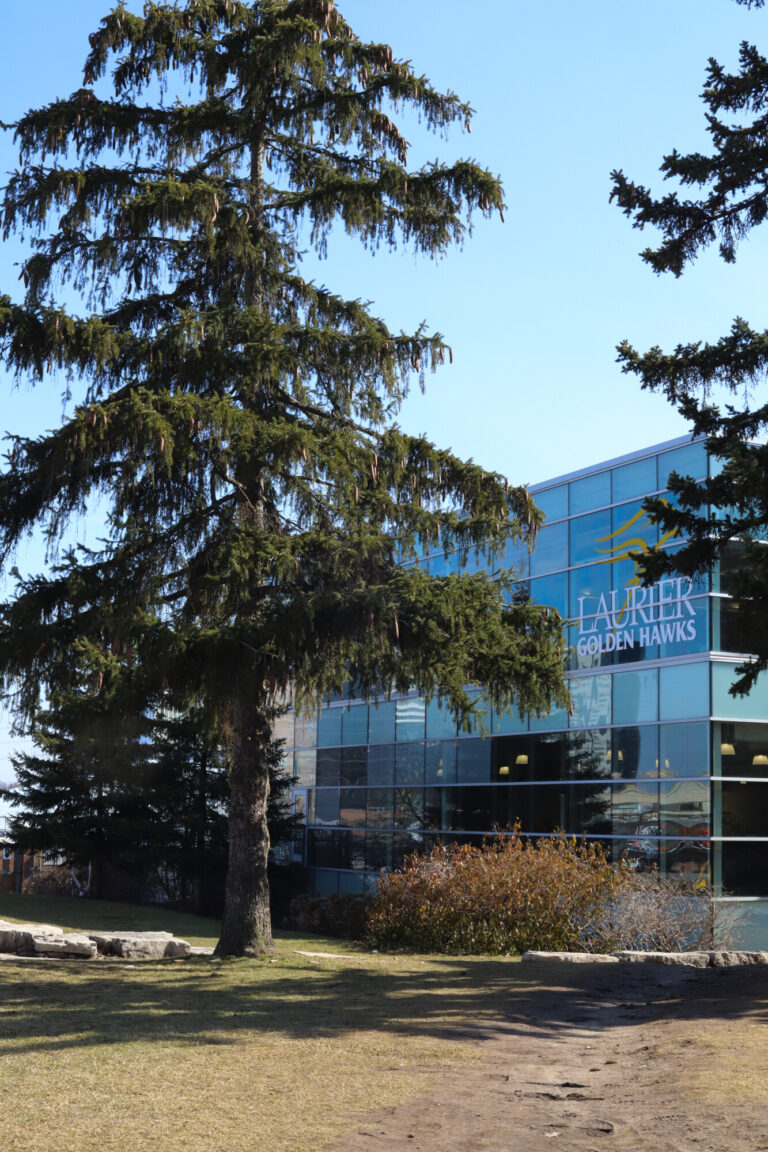If you’ve spent time at Wilfrid Laurier University (WLU) recently, you’ll have likely seen stickers posted around campus bearing this call to action. Maybe you’ve also seen posters, stuck to bulletin boards or taped up on the door of your favourite professor, exclaiming “I SUPPORT All Student Workers.” Or perhaps you’ve seen students hurrying to class with pins on their bags or coats that read “Unionize WLU.”
These little signs of solidarity scattered across the Wilfrid Laurier University campus are the work of UnionizeWLU, an organizing committee seeking to unionize Laurier’s student workers. This committee is made up of organizers with a shared ambition of securing collective bargaining power for student workers across Laurier’s campuses.
Hundreds of WLU students are employed by the university in a variety of important roles. Although there are a few labour unions representing various groups of workers at Laurier, most student workers are not unionized. UnionizeWLU, with the support of the Public Service Alliance of Canada (PSAC), is trying to change that.
Labour unions are increasingly common in academia, and student workers, in particular, are realizing the benefits of organizing. In Fall 2023, graduate TAs and RAs from the University of Waterloo voted overwhelmingly in favour of unionizing. In January of this year, they officially joined the Canadian Union of Public Employees (CUPE). A few years ago, WLU’s graduate TAs celebrated a similar victory. They officially unionized in December 2019 after a hard-fought organizing campaign, becoming a directly chartered local of PSAC.
The GTA union, PSAC 902, is the first and only labour union at WLU representing student workers. The goal of the current unionization campaign is to expand PSAC 902 to include other groups of student workers, such as instructional assistants (IAs) and research assistants (RAs).
The UnionizeWLU website outlines some of the reasons Laurier student workers are pursuing unionization. Disparities in pay, hours, workload and working conditions all contribute to a sense of frustration among workers, and there is currently no way for them to effectively address these concerns. For instance, many IAs perform the same role as GTAs but for lower pay.
In Spring 2023, following the unionization of GTAs and the continued campaign to unionize student workers, the university increased IA and RA wages. But even with the increase, these workers make less than their unionized peers. With a union, student workers would have a collective voice to advocate for fair compensation and overall better working conditions. Additionally, unions offer workers official channels for addressing job concerns without fear of retaliation.
In the early stages of unionization, interested workers will form an organizing committee. This committee works alongside union representatives to execute the unionization campaign. The primary objective of this campaign is getting workers to sign union cards. Union cards are confidential (meaning the employer will not know who has signed one), and they indicate that the signee supports the formation of a union.
Once enough workers have signed cards, the union files for certification with the Ontario Labour Relations Board (OLRB). The OLRB then conducts a secret ballot vote where all workers in the proposed bargaining unit have the opportunity to vote on whether they want to unionize. If the majority votes in favour of forming a union, the OLRB will issue certification. After certification, the newly formed union can begin working towards its first collective agreement.
A collective agreement is a contract between the unionized workers and their employers that outlines the rights and responsibilities of each party. A bargaining committee, elected by their fellow workers, negotiates the terms of the collective agreement with the employers in a process known as ‘collective bargaining’. The bargaining committee advocates for what the workers have determined is most important to them, meaning that every collective agreement will look different and reflect the particular needs of the union membership.
The collective bargaining process gives workers more say in the terms of their employment and the way their workplace operates. In essence, UnionizeWLU wants student workers to have a seat at the table.
Laurier student workers who are interested in signing a union card, getting involved, or learning more about the UnionizeWLU campaign can visit UnionizeWLU.ca or visit @UnionizeWLU on Instagram.

